Meet our cover star Lex, a unique brindle Labrador.
Cover Star: Lex.
Meet our cover star Lex, a unique brindle Labrador!
As a brindle pup, Lex has a rare and unique black and tan colouring, making him different to our black and yellow Labradors. This is due to a recessive gene that each parent must possess and in this case, Lex’s parents both carry the brindle gene!
Historically, Labradors have the personality and traits to suit the role of a Guide Dog. They are calm, loyal, intelligent, and highly trainable. Regardless of their colour, what matters most is their ability to become a trusted companion and exceptional Guide Dog for a person with low vision or blindness.
At Guide Dogs NSW/ACT, we work closely with international Guide Dog schools to provide genetic material to the dogs in our Breeding Program. This ensures we maintain our world-class lineage of puppies and potential Guide Dogs that meet our criteria of good temperament, behaviour and health.
Lex may be a rare gem but that makes no difference to his upcoming training!
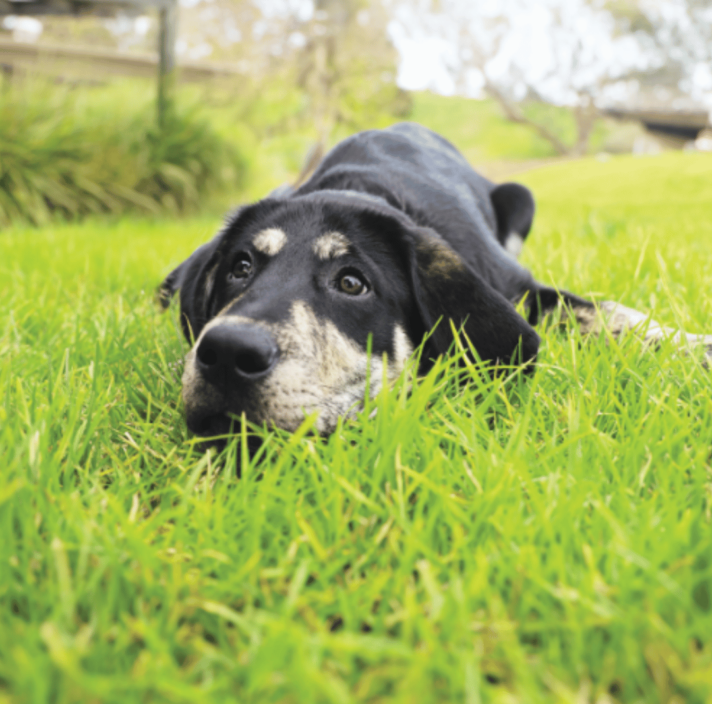
Follow up on Gene.
In our Winter edition of Guide Dog Tales, you heard about one of our Guide Dog Partners, Eugene, who sponsored Breeding Dog, Gene. We are thrilled to announce that in early June, Gene gave birth to eight beautiful black puppies; five females and three males.
These pups are in the “S” litter and are named, Slade, Sonic, Shae, Shiloh, Sansa, Sloan and Suey. There is one sponsored pup in this litter named Jag. We are delighted to report that Gene did well and is enjoying motherhood, her puppies are feeding well and putting on weight!
If you would like to find out more about sponsoring a puppy, please reach out to our Philanthropy Coordinator, Kristie Lee on 0467 744 776.
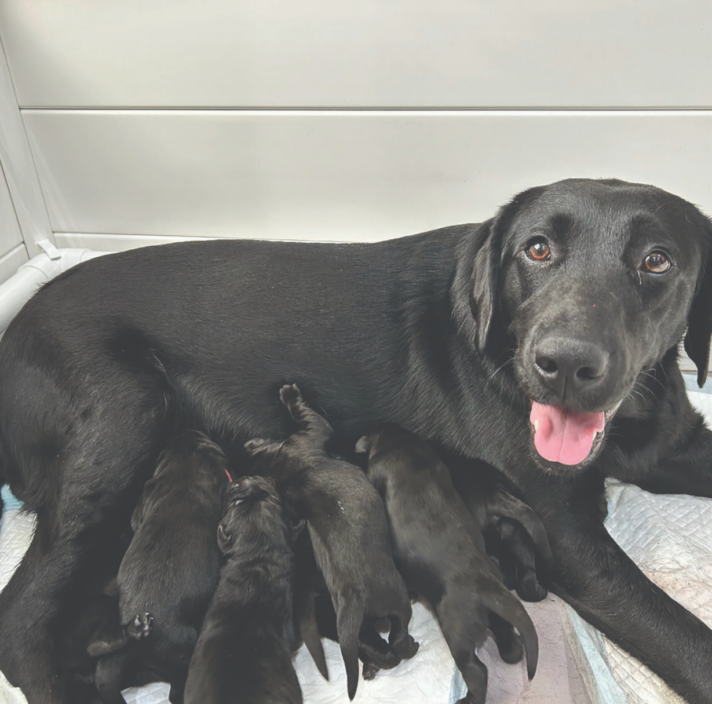
Meet our new Puppy Pals litter.
We are thrilled to announce the arrival of our newest Puppy Pals litter, the Hollywood litter! These adorable bundles of fluff were born in mid-August to proud mum Eliza, and we couldn’t be more excited to introduce them to you.
Our Puppy Pals played a starring role in naming this new litter. We received an overwhelming number of name suggestions, showcasing the creativity and enthusiasm of our supporters.
After careful consideration, the most popular names were chosen. The Hollywood litter consists of seven females named Monroe, Bette, Scarlett, Marilyn, Ginger, Judy and Riley, and two males named Humphrey and Rocky. With names like these, we just know these pups will be stars and make a significant impact to the lives of the people they will go on to support in their eventual careers.
Becoming a Puppy Pal means more than just supporting our puppies from birth, it means being part of their journey every step of the way. Puppy Pals receive exclusive Pupdates that highlight the litter’s progress, from their first weeks to their training and eventual graduation.
Puppy Pals also receive invitations to special events, giving them the opportunity to meet the puppies they follow and the dedicated team that trains them. Plus, they get the chance to name future pups, like this playful litter.
Becoming a Puppy Pal means you play a crucial role in ensuring our puppies have the best start to life. Regular donations help cover the costs of breeding, training and caring for these remarkable dogs so they may become life-changing companions for people with low vision or blindness.
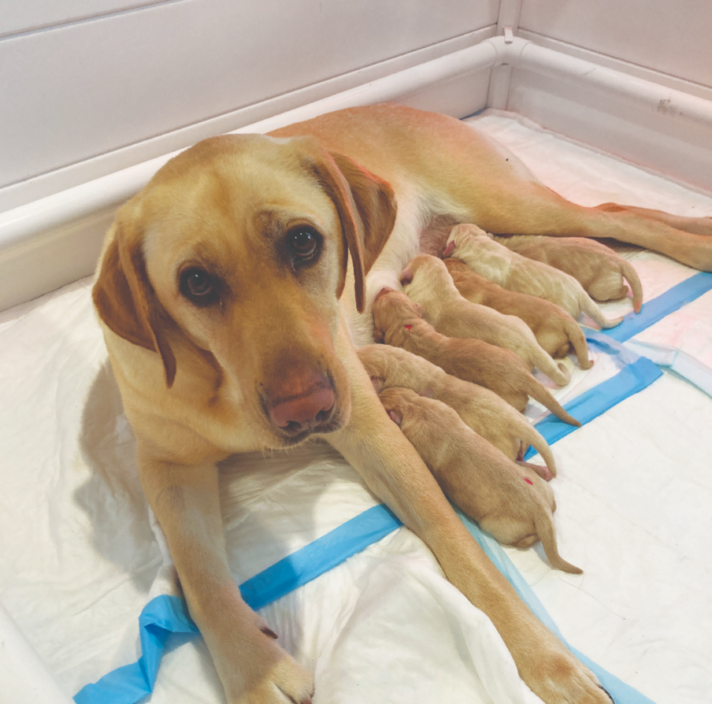
Find the PAWfect present.
Can you believe it’s already close to that time of the year? Your favourite gifts have returned to help you kickstart your Christmas shopping. Our most popular items are in stock for you to share some puppy love with your loved ones or treat yourself!
To place an order, please visit nsw.pawfectpresents.com.au or call 1800 436 364.
Please place your order by 6 December 2024 to ensure delivery before Christmas. Our office will be closed from Friday 20 December 2024 to Monday 6 January 2025. Any orders received during this period will be fulfilled after 6 January 2025.
Every purchase supports our pups in training!
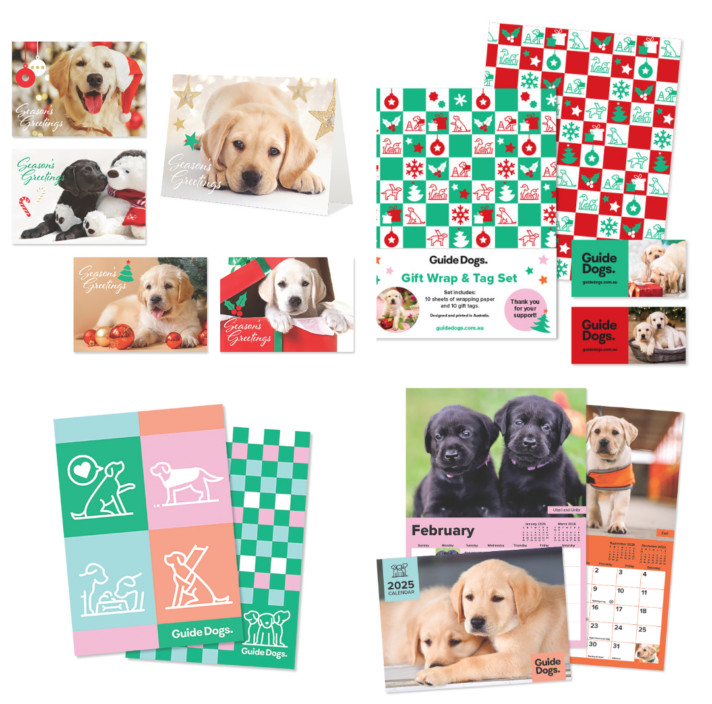
Dogs off Duty.
Tony and Solo.
After a long day of work, we walk in the front door and Solo follows me into my office to get undressed. He heels and I remove his harness and collar. Ahhh, dog mode kicks in. We’ve been home for 30 seconds and he already needs food (yes, he’s a Lab!). Then it’s playtime, as he ratbags around and says g’day to my wife and son with a Kong Stick or Wubba in his mouth. Later it’s cuddle time, as I recline my chair he curls up between my legs for some one-on-one time before bed.
Solo’s favourite thing to do when I’m not working is to snuggle. He’s such a softy and I love that about him so much. On the weekends and in the daytime at home, he loves to play and follow people around. He’s such a sticky beak and he always needs to know what everyone’s up to. Although, he still keeps a watchful eye on me. Solo is so much more than a Guide Dog, he’s a true family member.
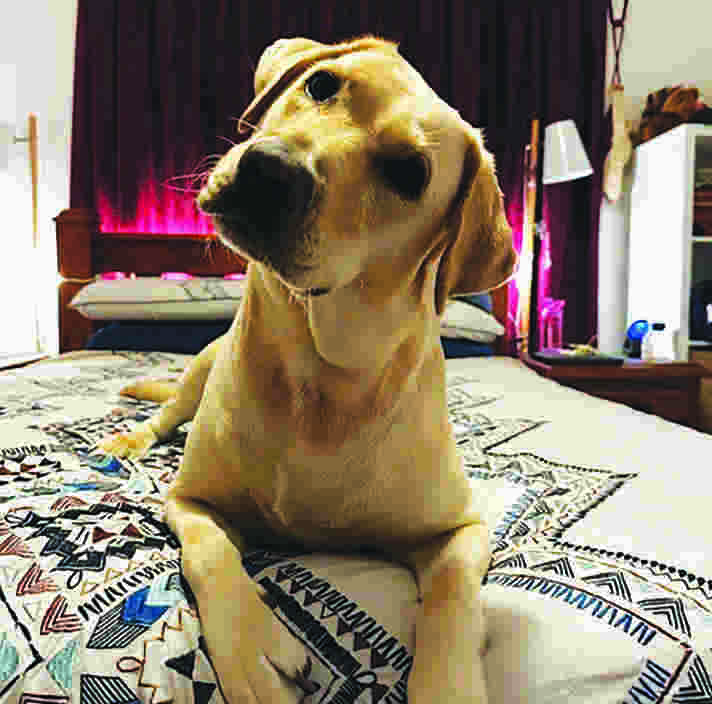
The Paralympics is the goal!
You’re standing in front of a wide goal on a hard court with two of your teammates on either side of you. You’re blindfolded. The crowd is silent. You can’t hear anything expect your own heart beating through your chest. Then, your ears pick up a faint jingle from the other end of the court. The sound gets louder and louder as you brace for the impact of a heavy ball hurtling at sixty kilometers an hour to hit your body. Funnily enough, you dive towards the jingling sound and consequently the ball, to stop it from entering your goal. You feel the ball hit your leg and the jingle stops. The crowd erupts in a cheer.
This is Goalball, a sport created for people who are blind or have low vision. Guide Dogs Client Zara has experienced the adrenaline rush of playing at an elite level for the last few years. She’s competed in the NSW Goalball team since 2019 and internationally for the Australian women’s Goalball team, the Aussie Belles since 2022.
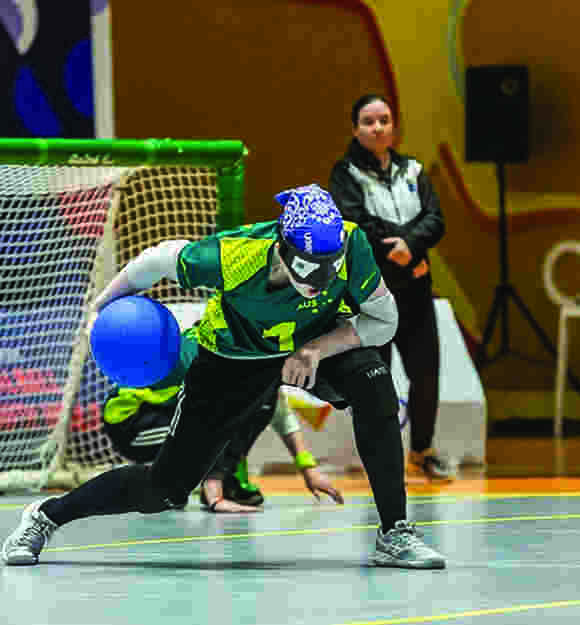
Zara was introduced to Goalball at a Guide Dogs Youth Holiday Camp by one of the camp’s speakers, Goalball Paralympic Athlete Amy Ridley.
“Amy kept telling me to come and try Goalball just for fun so when I eventually did, from the first session I was hooked.”
Playing Goalball at an elite level requires discipline and long hours of training. Zara fits in five training sessions a week by herself and with trainers in the gym, two on-court sessions every week and training camps with the rest of the team over some weekends. With players scattered all over the country, everyone travels interstate to attend camps to train intensively before coming home with feedback and implementing it at a state level.
“It’s a lot of self-driven training everyday but then we use the time we have together as a team effectively to work on combinations and strategy,” says Zara.
Even though her ultimate goal is to get to the Paralympics one day, Goalball has taken Zara to twelve different countries already, including the World Championships in Portugal and the Youth World Championships in Brazil where her team snagged a silver medal.
However, jet setting is nothing compared to the community Zara’s met through the sport. Teammates have turned into gym partners and then into friends. Travelling together for weeks at a time always helps foster that strong bond.
Community
Angela and her Guide Dogs, Piper and Jolie are true community champions!
Since departing the Emerald Isle in 2008 with her late husband Norman and Irish Guide Dog Hamish, Angela has made it her mission to support Guide Dogs NSW/ACT in whatever way she can. Being almost totally blind holds no bounds for Angela. Over the past 15 years, she has made a significant contribution to a range of fundraising and public awareness activities.
Angela first became involved in fundraising when she joined the Guide Dogs Central Coast Volunteer Support Group in 2010. She used her skills in public relations speaking presentations at local schools, Probus and other community groups for seniors. Swimming at the local pool with Hamish close by her side was another opportunity for her to spread the word about Guide Dogs, whilst making lots of new human and four legged friends!
With her reputation for public speaking spreading, Angela was invited to join the Guide Dogs Lived Experience Speaker Program. As part of the program, she attended events where she regaled supporters and members of the public with the wonderful and heart-warming stories of how her Guide Dog has changed her life.
In 2018, Hamish retired and Angela was given her first Australian Guide Dog Piper, a beautiful yellow Labrador. The duo regularly attend fundraising stalls at shopping centres across the Central Coast where Angela had a chat to visitors about her initial experience with low vision. Angela provides information on Guide Dogs services and promotes the various ways people can help to raise funds.
With the knowledge that over half our dogs and services are made possible by gifts in Wills, Angela decided to extend her already generous support to include a bequest to Guide Dogs NSW/ACT.
“I would hope that by leaving a bequest, somebody else down the road will have the same life, freedom, independence and confidence that I get with my Guide Dog.”
This year, as Piper hangs up her harness to enjoy a well-deserved retirement, Angela welcomes a new member to her family, Guide Dog Jolie. Jolie is the sister of the Central Coast Supporter Group’s very own sponsored Guide Dog, Coastie! This is an extra special match for Angela, as one Guide Dog journey draws to a close, the next one begins.
At Guide Dogs NSW/ACT, your generosity makes magic happen. If you’re passionate about making a lasting impact for people living with low vision or blindness, consider leaving a gift in your Will to Guide Dogs NSW/ACT.
For more information, please call Bill Ballis on 02 9412 9478 or send an email to bballis@guidedogs.com.au
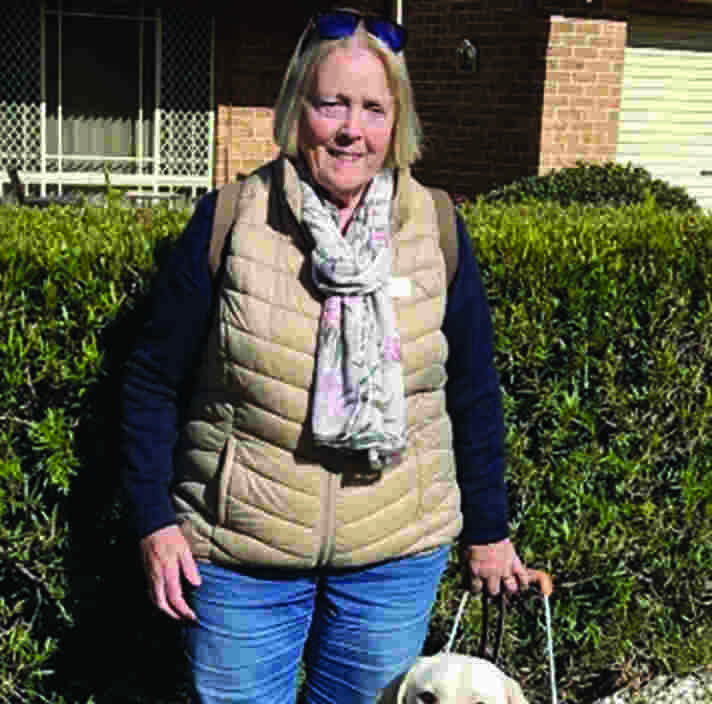
Eye Health
Spotlight on inherited retinal diseases.
Inherited retinal diseases (IRDs) are often also called inherited retinal dystrophies or degenerations. They are caused by a variation in the eye’s genetic coding, resulting in the proteins in the eye not functioning as they are intended. According to a 2021 study by the Ophthalmic Genet, IRDs are the currently the most common cause of blindness in Australia’s working-age population.
For sighted people, the retina acts like film in a traditional camera. It creates pictures and sends them through the optic nerve to the brain for interpretation.
The retina is the light-sensitive tissue located at the back of the eye. It contains different types of retinal cells. For people with an IRD, the retinal cells don’t function as they are supposed to, causing low vision or blindness over time. The most common IRD is Retinitis Pigmentosa, affecting one in 4,000 people worldwide.
In the past, very little could be done to treat IRDs. However, genetic testing is now able to identify the gene mutation responsible for IRDs in around six out of every ten people. As a result, scientists are making significant in-roads into developing treatments for a wide range of IRDs using gene therapy. Did you know, Australian researchers are some of the world leaders in this technology?
It is more important now than ever for people that have an IRD to undergo genetic testing. This enables researchers to continue refining their work towards finding suitable treatments. For more information, visit your local eye care professional who can discuss this with you or refer you to an appropriate specialist.
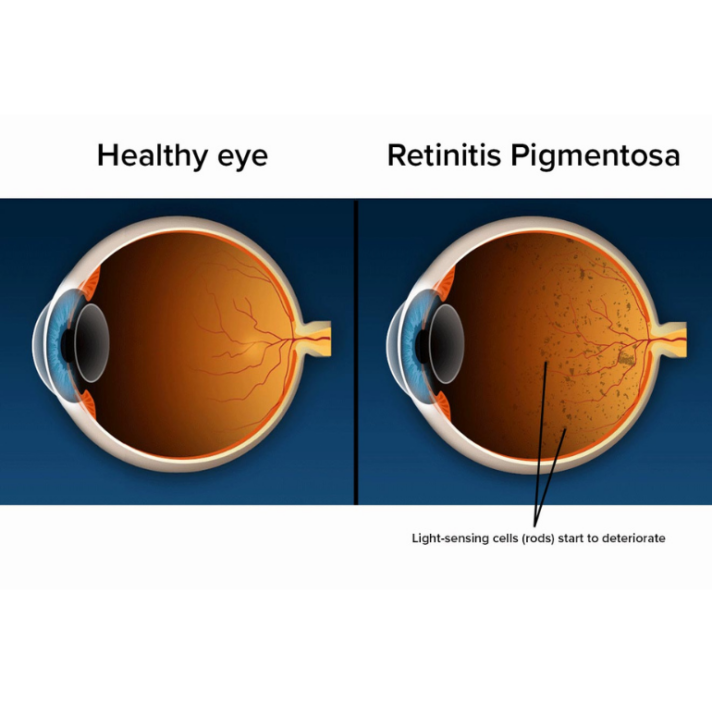
Supporter spotlight
Love for my dog.
I met her when she was one year old,
No one wanted her, I was told,
Trying her best to look the part,
They took the rest, but left her heart,
A tired old dog before her time,
No one wanted her, so I made her mine.
We walked a while along the street,
I opened the door, she took a seat,
She sat down beside me at my feet,
Her trust in me, now that was really neat.
We played from morning till the haze,
We never bothered counting the days,
No one trying to pull us apart,
I think that’s the way it had to start.
We walked along those Paddington Hills,
Didn’t worry about paying the bills,
She tells me she loves me in a thousand ways.
From the morning till the haze.
She is fourteen now, and I love her still,
So will do it again and climb those hills,
The more I think of people,
The better I like animals,
People only want the best of you.
Never the rest of you.
A poem by “Rosscoe” Tucker, a proud supporter of Guide Dogs NSW/ACT in memory of his beloved Labrador, Gina and about the importance of unconditional love.
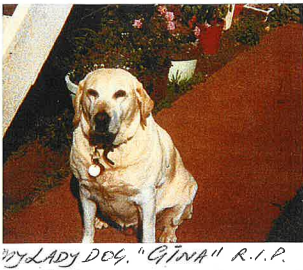
Impact
The first blind Barbie.
In a collaborative effort between the toy manufacturer Mattel and a group of organisations dedicated to supporting people with low vision or blindness, the first blind Barbie doll made its debut last month!
The Royal National Institute of Blind People (RNIB) and the American Foundation for the Blind (AFB) provided input into the doll’s features and packaging, including the Barbie logo written in Braille on the box.
The doll comes with a white cane, dark sunglasses, textured and bright clothes with practical fastenings, and elbow joints that bend to allow for the realistic use of her cane.
This is a great step forward for inclusivity and representation of the blind and low vision community, as traditionally Barbie remained unchanged for decades.
“The blind community knows a lot about the sighted community, but the sighted community doesn’t know a lot about the blind and low vision community… it can be educational and provide some pretty unique awareness,” said AFB CEO Eric Bridges.
We hope to see more inclusive practices and packaging from the toy giant in the future.
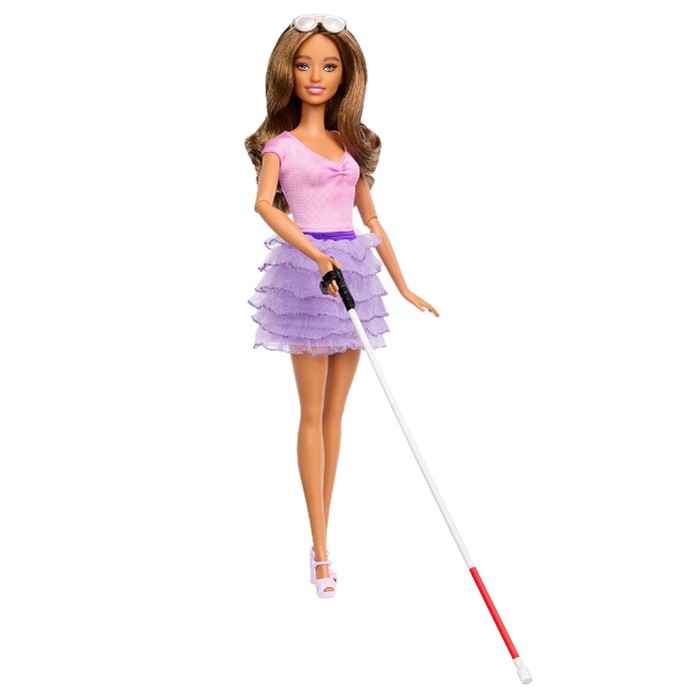
Puppy Tales
Pip is back at Guide Dogs for her first assessment.
Pip has come back to Guide Dogs NSW/ACT at 16 months, after living with her Puppy Raisers, to begin her week of assessment. During this week she will be assessed on things like concentration, confidence and dog distraction. She will also catch up with some friends and her fellow P litter siblings. If Pip passes her week long assessment she will progress on to further training. Good luck Pip!
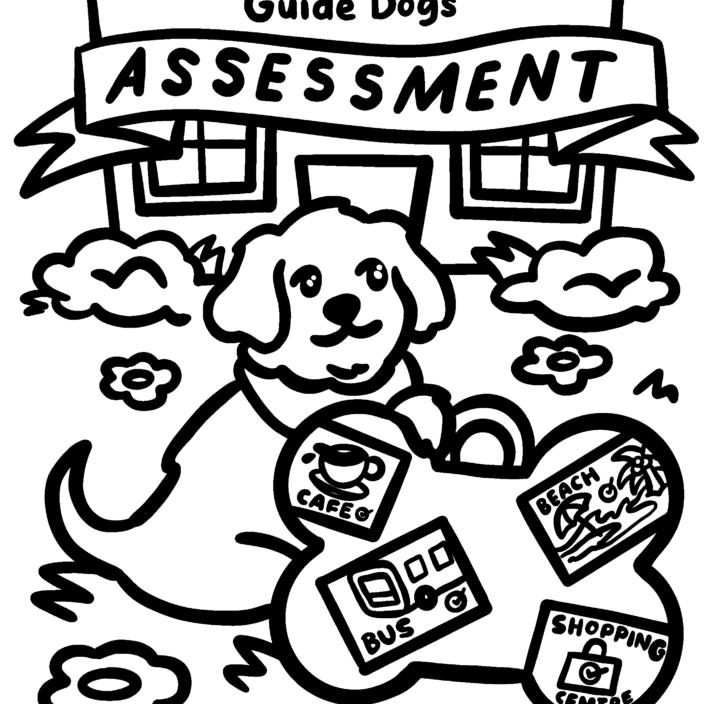
Corporate
Changing your precious pup's food,
We are committed to providing our dogs with the highest standard of care and their nutrition is a key part of this commitment. Recently, Guide Dogs NSW/ACT partnered with Black Hawk to transition our dogs in training to their all-natural dog food.
Transitioning a dog’s diet must be done gradually. Veterinarians recommend a transition period of at least one week, as the good bacteria in the gut needs time to adapt to digesting the new food. Our dogs successfully switched to Black Hawk over a seven-day period, as we gradually increased the new food’s portion in their meals.
Dr. Caroline Moeser, Guide Dogs Vet, expressed her excitement about the change. “We’re thrilled to have switched our dogs to Black Hawk’s all-natural dog food. The food’s exceptional quality and rich nutrition support us in offering them the best care possible so they can thrive. Thank you, Black Hawk.”
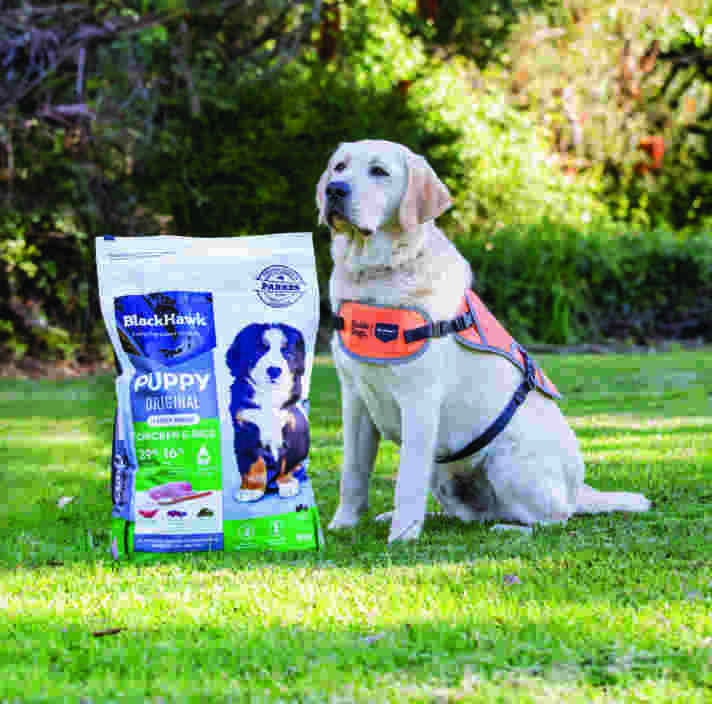
Guide to transitioning food according to Black Hawk and Guide Dogs NSW/ACT feeding protocols. The percentage shown in each container is the amount of Black Hawk food that should replace the dog’s original food source.
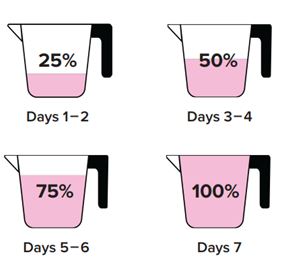
Our Partners
Thank you to our partners.
Ready to continue?
Seems like you have filled this form earlier. Let’s pick up where you left off.

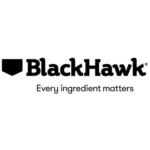
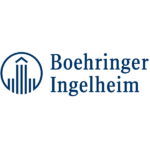

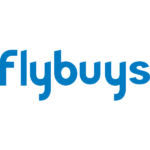
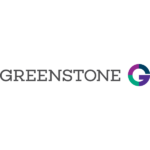


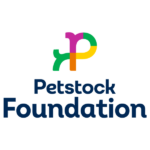
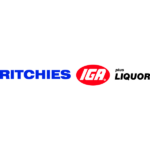



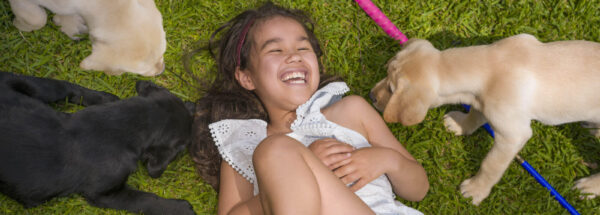
Social Change
Introducing our new Social Change team.
We are proud to introduce our newly formed Social Change team at Guide Dogs NSW/ACT. Our purpose is to uphold the rights of people with low vision or blindness in the community through advocating for systemic change. The team has seven members, all with diverse backgrounds and experience and three of whom are Clients and Guide Dog Handlers!
Having been in operation for less than a year, the team has hit the ground running and already achieved remarkable outcomes for our community, from regaining accessibility of the Hazards Near Me app to the taxi and rideshare refusal campaign which resulted in increased fines.
Imagine being refused entry into a taxi. Suddenly, you’re blocked from navigating your community and completing everyday activities. To make matters worse, you don’t know if the next taxi or rideshare you order will result in another refusal.
This is a major barrier to inclusion for Guide Dog Handlers, with a recent survey revealing that this is a daily occurrence. Not only is it illegal for taxi and rideshare drivers to refuse an Assistance Animal, but this discriminatory behaviour also results in unwarranted stress and anxiety for Guide Dog Handlers.
Since launching this campaign, the NSW Government has agreed to increase the on-the-spot fine for a refusal from $330 to $1,000. This win for the Social Change team is incredibly important because it demonstrates that the government takes refusals seriously.
The Social Change team are continuing discussions with the government about developing complaint management procedures and implementing mandatory reporting for Assistance Animal refusals.
With each edition of Guide Dog Tales, we will provide an update on our important work to share our passion for making the world more inclusive and accessible for people living with low vision or blindness.